The Center for Cognitive and Behavioral Brain Imaging (CCBBI) recognizes the need for a more diverse body in academia, science, and research. To afford the opportunity of success to undergraduate students, CCBBI is proposing the ADNIR Initiative to provide funding for academic and professional development to individuals from underrepresented groups interested in pursuing a career in research.
For more information about ADNiR, please read the detailed initiative.
Congratulations to our 2024 recipients
Declan Alford

My name is Declan Alford and I am a current third-year undergraduate student here at Ohio State majoring in psychology. Throughout my undergraduate career, I developed my interest in the intersection between behavioral psychology and neuroimaging research, which led me to apply to the ADNiR program. Through this program, I started working as a research assistant at Hoskinson Laboratory, where I have been able to further cultivate my research interests in this field by participating in neuroimaging data analysis and various study visits. After finishing my undergraduate career, I am planning on continuing to pursue research and either work towards a PhD in behavioral psychology or an MD in psychiatry.
Declan completed rotations with Dr. Jewel Crasta and Dr. Kristen Hoskinson. Declan has joined Dr. Hoskinson's lab.
Sophia Jeng
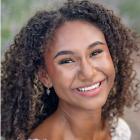
Hello, my name is Sophie Jeng. I am majoring in Psychology with a minor in Pharmaceutical Sciences. After graduation, I look forward to pursuing my PhD in Clinical Psychology, becoming a dual researcher and clinician. My research interests are ever expanding, however, my combined interests in pharmaceuticals, neuroimaging, and patient care have grown my affinity for the functional structures of the brain and its links in behavior.
Sophie completed rotations with Dr. Jewel Crasta, Dr. Kristen Hoskinson, and Dr. Jay Fournier. Sophie has joined Dr. Hoskinson's lab.
2023 Recipients
Ajuna Mwesigye

Ajuna was an ADNiR scholar on a joint project between Dr. David Osher and Dr. Zeynep Saygin.
Ajuna graduated in the spring of 2024 and is currently working as a Virtual Health Technician for the University of Colorado Hospital (UCHealth).
Lingwen Ren
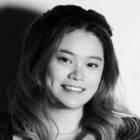
I am currently an anticipated junior pursuing a dual major in Psychology and Pre-Neuroscience, with an expected graduation date in the year 2025. Under multiple influences (personal & academic), I became extremely interested in individual differences and personalized medicine. This program has successfully furthered my interest in research and made me more determined in my area of interest. In the future, I plan to apply for a clinical/neuroscience PhD program after finishing a post-baccalaureate position. I’m so grateful for this opportunity and I would encourage those who are interested in neuroscience and brain imaging to be open to this type of opportunities!
Lingwen rotated in the labs of Dr. King, Dr. Way, and Dr. Fournier. Lingwen has joined Dr. Fournier's lab.
2022 Recipients
Florencia Ontiveros
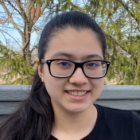
Florencia was an ADNiR scholar with Dr. Kristen Hoskinson.
She received a Bachelor of Science in Neuroscience in 2024. Florencia continues to work in Dr. Hoskinson’s lab as a clinical research coordinator and has joined Dr. Eric Nelson’s lab in the Center for Biobehavioral Health at Nationwide Children’s Hospital. She is interested in how pediatric injury and disease impact brain structure and function and how they relate to cognitive and behavioral outcomes, especially cognitive abilities like memory. Florencia is currently involved in all aspects of neuroimaging research from recruiting to data analysis and wants to pursue a PhD in cognitive neuroscience.
Mengxin (AvA) Ran
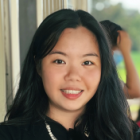
AvA was an ADNiR scholar in Dr. Julie Golomb’s lab.
AvA is currently a lab manager and research assistant in the FeldmanHall Lab at Brown University. The lab studies how we adaptively navigate our social worlds and AvA is focusing on how resources in the environment influence prosocial behavior and how social identity influences political polarization.
2021 Recipients
Alexa Shin
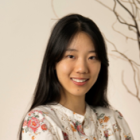
Alexa was an ADNiR scholar in Dr. Scott Hayes' lab.
Alexa is currently attending medical school at the University of Toledo.
Jessica Timog
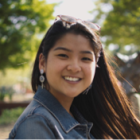
Jessica was an ADNiR scholar in Dr. David Osher's lab.
Jessica is currrently a graduate student at OSU, as a dual degree MA/PhD student in the Department of Speech and Hearing Science.
2020 Recipients
Yasemin Gokcen
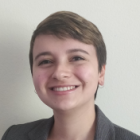
Yasemin was an ADNiR scholar in Dr. Zeynep Saygin's lab.
Yasemin is currently a PhD student at the University of California, Merced in the Cognitive and Information Sciences department working under Dr. David Noelle and Dr. Rachel Ryskin. Her research is focused on the neural mechanisms of context memory and language. In 2024, she was granted an award from the ARCS (Achievement Rewards for College Scientists) Foundation Northern California Chapter, which supports promising graduate students in science, technology, engineering, math and medical research.
Arian Sorani
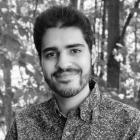
Arian was an ADNiR scholar in Dr. Theodore Beauchaine’s lab. His honors thesis focused on understanding the neural networks underlying trait impulsivity in adolescents, a risk factor for developing future substance use.
After graduation, Arian worked as a research associate at the Center for Injury Research and Policy at the Abigail Wexner Research Institute at Nationwide Children's Hospital, where he was involved in a study that sought to legalize fentanyl testing strips.
In the fall of 2024, Arian earned a master’s degree in clinical research at the Ohio State University. His studied pharmacovigilance and international and domestic regulatory guidelines for conducting clinical trials.
Arian is currently a regulatory compliance officer at the James Comprehensive Cancer Center where he works with the Food and Drug Administration and Institutional Review Board to provide cancer patients with access to oncology trials.
Arian also founded henarpress.org, a 501(c)3 nonprofit organization that translates and publishes Kurdish literature.
